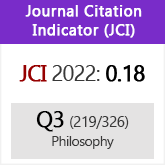La constitución fiduciaria de la libertad política. (Por qué son importantes las coyunturas interpretativas en la filosofía política)
DOI:
https://doi.org/10.3989/isegoria.2017.057.02Palabras clave:
libertad política, coyuntura interpretativa, propiedad, principal/agente, Locke, liberalismoResumen
Algunas formulaciones de la filosofía política reciente han descuidado el carácter históricamente indexado de conceptos como libertad política, propiedad o soberanía, propiciando un uso anacrónico e impreciso de su significado. No obstante, su posición académica y social dominante informa el «sentido común» filosófico- político de nuestra época. Locke constituye un ejemplo de cómo la coyuntura interpretativa liberal, que se desplegó en el siglo XIX y se consolidó en el XX, ha oscurecido una parte de la complejidad y pluralidad de las tradiciones intelectuales y normativas que heredó. La reconstrucción de la filosofía política lockeana a partir de su concepción fiduciaria de la libertad política contribuye a hacer de nuevo visible el significado de algunas concepciones fundamentales para la teorización normativa presente.
Descargas
Citas
Ashcraft, R. (1986), Revolutionary Politics and Locke's Two Treatises of Government, Princeton, Princeton University Press.
Barbeyrac, Jean (1706), «Preface», en: S. Pudendorf, Le droit de la nature et des gens, traduction du latin et preface par Jean Barbeyrac, Amsterdam, éditeur H. Schelte.
Blackstone, W. (1979), Commentaries of the Laws of England: A Facmisile of the First Edition of 1765-1769 , ed. Stanley N. Katz, 4 vols., Chicago, University of Chicago Press.
Cohen, G. (1995), Self-Ownership, Freedom, and Equality, Cambridge, Cambridge University Press. https://doi.org/10.1017/CBO9780511521270
Coleman, J. (2005), «Pre-Modern Property and Self-Ownership Before and After Locke: Or, When did Common Decency Become a Private rather than a Public Virtue?», European Journal of Political Theory, 4: 125-145. https://doi.org/10.1177/1474885105050446
Desan, S. (2004), The Family on Trial in Revolutionary France, Berkeley, University of California Press. PMid:15064675
Domènech, A. (2009), «Droit, droit naturel et tradition républicaine moderne», en: F. Gauthier, M. Belissa et Y. Bosc (dirs.), Républicanismes et droit naturel à l'époque moderne. Des humanistes aux révolutions des droits de l'homme et du citoyen, París, Éd. Kimé, pp. 30-48.
Dunn, J. (1969), The Political Thought of John Locke, Cambridge, Cambridge University Press. https://doi.org/10.1017/CBO9780511558436
Fell, John. (1659), The Interest of England Stated , 20th of July.
Fitzmaurice, A. (2014), Sovereignty, Property and Empire, 1500-2000, Cambridge, Cambridge University Press. https://doi.org/10.1017/CBO9781139924306
Franklin, J.H. (1978), John Locke and the theory of sovereignty, Cambridge, Cambridge University Press.
Goldie, M. (1980), «The revolution of 1689 and the structure of political argument», Bulletin of Research in the Humanities, vol. 83, n. 4, pp. 473-564.
Goldie, M. (1980), «The roots of true wiggism, 1688-94», History of Political Thought, vol. 1, n. 2, pp. 195-236.
Goldie, M. (ed.) (1999), The Reception of Locke's Politics, London, Pickering & Chatto, vol. 1.
Gordon, R.W. (1995), «Paradoxical property», en: J. Brewer y S. Staves (eds.), Early Modern Conceptions of Property, London/New York, Routledge, pp. 95-110.
Gough, J.W. (1950), John Locke's Political Philosophy: Eight Studies, Oxford, The Clarendon Press.
Grant, R.W. (1987), John Locke's Liberalism, Chicago, The University of Chicago Press. https://doi.org/10.7208/chicago/9780226306919.001.0001
Grant, R.W. (2003), «John Locke on Women and the Family», en: John Locke, Two Treatises of Government and A Letter Concerning Toleration, edición de Ian Shapiro, New Haven/London, Yale University Press, pp. 286-308. PMid:12579053
Grocio, H. (1987 [1625]), Del derecho de presa; Del derecho de la guerra y de la paz: textos de las obras "De iure praedae" y "De iure belli ac pacis", edición bilingüe, traducción, introducción y notas de Primitivo Mari-o Gómez, Madrid, Centro de Estudios Constitucionales.
Harrison, J. y P. Laslett (1965), The Library of John Locke, Oxford, Oxford University Press.
Hooker, R. (1622), Of the Laws of Ecclesiastical Polity, London, William Stanbye.
Hundert, E.J. (1977), «Market Society and Meaning in Locke's Political Philosophy», Journal of the History of Philosophy, vol. 15, n. 1, pp. 33-44. https://doi.org/10.1353/hph.2008.0661
Kant, I. (1902-), Kant's gesammelte Schriften , hrsg. von der Preussichen und der Deutschen Akademie der Wissenschaften, Berlin.
Lamprecht, S.P. (1955), Our Philosophical Traditions: A Brief History of Philosophy in Western Civilization, New York, Appleton-Century-Crofts. PMid:13294818
Larkin, P. (1930), Property in the Eighteenth Century. With Special Reference to England and Locke, Dublin/New York, Cork University Press.
Laski, H.J. (1936), The Rise of European Liberalism: An Essay in Interpretation, London, George Allen & Unwin Ltd.
Laslett, P. (1956), «The English Revolution and John Locke's Two Treatises of Government», Cambridge Historical Journal, vol. 12, pp. 40-55. https://doi.org/10.1017/S1474691300000329
Locke, J. (1975), An Essay Concerning Human Understanding, edición de Peter H. Nidditch, Oxford, Clarendon Press. PMCid:PMC1311878
Locke, J. (1988), Two Treatises of Government, ed. Peter Laslett, 2nd. ed., reprinted, Cambridge: Cambridge University Press. https://doi.org/10.1017/CBO9780511810268
Locke, J. (2015), Dos Tractos sobre el gobierno y otros escritos, traducción y edición de David Mielgo, Madrid, Biblioteca Nueva.
Macpherson, C.B. (1962), The Political Theory of Possessive Individualism, Oxford, Oxford University Press.
Mundó, J. (2005), «Autopropiedad, derechos y libertad (¿debería estar permitido que uno pudiera tratarse a sí mismo como a un esclavo?)», en: M.J. Bertomeu et al. (eds.), Republicanismo y democracia, Buenos Aires, Mi-o y Dávila editores, pp. 187-208. PMCid:PMC2424121
Mundó, J. (en prensa), «Propiedad, apropiación, desposesión. Repensar la libertad en la tradición republicana», en: M. Burgos y R. Gutiérrez (eds.), Derechos, democracia y pueblos. Debates desde el republicanismo democrático y el pluralismo jurídico, México: Instituto de Investigaciones Jurídicas, UNAM.
Nozick, R. (1974), Anachy, State, and Utopia, Oxford, Basil Blackwell.
Overton, R. (1934), A Remostrance of Many Thousands of Citizens (1646), citado en: Tracts on Liberty in the Puritan Revolution 1638-1647, William Haller, ed.
Pocock, J.G.A (1987), The Ancient Constitution and the Feudal Law, Cambridge, Cambridge University Press. https://doi.org/10.1017/CBO9780511571459
Purdy, J. y K. Fielding (2007), «Trustees, Guardians: Private-Law Concepts and the Limits of Legitimate State Power», Law and Contemporary Problems, vol. 70, n. 3, pp. 165-212.
Sabine, G.H. (1937), A History of Political Theory, London, George G. Harrap & Co.
Schochet, G.J. (1989), «Radical Politics and Ashcraft's Treatise on Locke», Journal of the History of Ideas, vol. 50, n. 3, pp. 491-510. https://doi.org/10.2307/2709574
Skinner, Q. (1979), The Foundations of Modern Political Thought, Cambridge, Cambridge University Press.
Stephen, L. (1876), History of English Thought in the Eighteenth Century, London, Smith, Elder & Co.
Strauss, L. (1953), Natural Right and History, Chicago, Chicago University Press.
Tierney, B. (1997), The Idea of Natural Rights. Studies on Natural Rights, Natural Law, and Church Law 1150-1625, Grand Rapids/Cambridge, William B. Eerdmans Publishing Company.
Tuck, R. (1979), Natural Right Theories. Their Origin and Development, Cambridge, Cambridge University Press. https://doi.org/10.1017/CBO9781139163569
Tully, J. (1980), A Discourse on Property. John Locke and His Adversaries, Cambridge, Cambridge University Press. https://doi.org/10.1017/CBO9780511558641
Tully, J. (1993), An Approach to Political Philosophy: Locke in Contexts, Cambridge, Cambridge University Press. https://doi.org/10.1017/CBO9780511607882
Wolfe, D.M. (ed.) (1944), Leveller Manifestoes of the Puritan Revolution, New York, Thomas Nelson and Sons. PMid:21434204
Wolin, S. (1960), Politics and Vision, Princeton, Princeton University Press. PMid:13702819
Wood, N. (1983), The Politics of Locke's Philosophy, Berkeley and Los Angeles, University of California Press.
Wooton, D. (ed.) (1986), Divine Right and Democracy: An Anthology of Political Writing in Stuart England, Harmondsworth, Penguin Books.
Wren, Mathew (1667), England's Monarchy Asserted, Oxford.
Descargas
Publicado
Cómo citar
Número
Sección
Licencia
Derechos de autor 2017 Consejo Superior de Investigaciones Científicas (CSIC)

Esta obra está bajo una licencia internacional Creative Commons Atribución 4.0.
© CSIC. Los originales publicados en las ediciones impresa y electrónica de esta Revista son propiedad del Consejo Superior de Investigaciones Científicas, siendo necesario citar la procedencia en cualquier reproducción parcial o total.Salvo indicación contraria, todos los contenidos de la edición electrónica se distribuyen bajo una licencia de uso y distribución “Creative Commons Reconocimiento 4.0 Internacional ” (CC BY 4.0). Puede consultar desde aquí la versión informativa y el texto legal de la licencia. Esta circunstancia ha de hacerse constar expresamente de esta forma cuando sea necesario.
No se autoriza el depósito en repositorios, páginas web personales o similares de cualquier otra versión distinta a la publicada por el editor.














